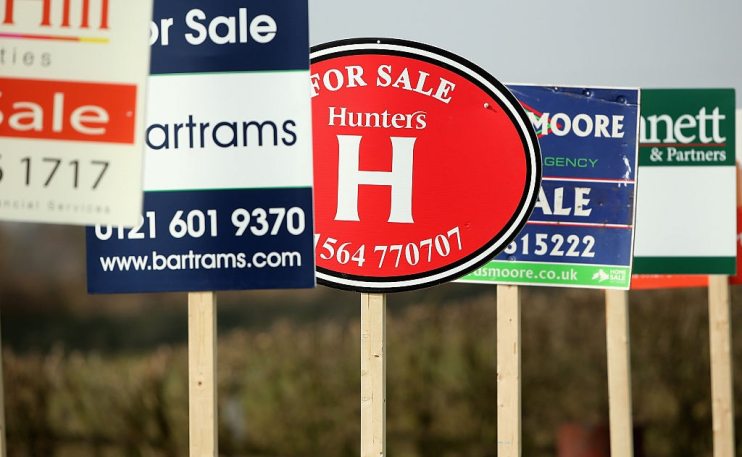Mortgage approvals rise to highest level in a year – but UK housing market rebound unlikely to last

The housing market’s rebound continued in January with new mortgage approvals hitting its highest level in over a year, new figures show, but the trend is unlikely to continue much longer.
Mortgage approvals, which are an indicator of future borrowing, increased again in January, rising from 51,500 to 55,200. This took it to its highest level since October 2022, just before the spike in mortgage rates following the mini-budget.
Approvals for remortgaging remained stable at 30,900.
The figures show that the housing market is steadily recovering from the impact of higher interest rates.
Although the Bank of England has hiked interest rates to a post-financial crisis high of 5.25 per cent, markets think the Bank will start cutting rates this summer.
Expectations of lower interest rates have boosted the housing market. Figures from Halifax showed that house prices rose 2.5 per cent in the year to January, the best performance since January 2022.
But Martin Beck, chief economic advisor the EY Item Club said the improvement should not be “overemphasised”.
“Mortgage approvals in January were still a tenth below the 2022 average, reflecting the fact that while mortgage affordability has improved in recent months, it’s still very stretched relative to past norms,” he said.
The figures also showed that households continued to pay off mortgage debt, with net lending falling £1.1bn in January. Mortgage lending fell 0.2 per cent on a year earlier, the first annual decline since 1994.
The rise in mortgage approvals is also unlikely to continue, as mortgage rates have increased in response to changing expectations for when the Bank will start cutting interest rates.
The average two-year deal stood at 5.75 per cent this morning, up from 5.74 per cent the day before. A typical five-year deal was 5.33 per cent, up from 5.32 per cent yesterday.
“Increasing interest rate expectations will mean the fall in mortgage rates will now pause, and could partially reverse,” Ashley Webb, UK economist at Capital Economics said.
The data also showed that household borrowing posted a rebound in January, with borrowing rising to £1.9bn from £1.3bn in December.
This was largely driven by higher borrowing on credit cards, which increased from £300m to £900m in January. Other forms of consumer credit increased to £1bn from £900m.
The pick-up in borrowing reinforces hopes that the worst is over for UK consumers. Retail sales figures for January showed sales volumes were up 3.4 per cent.
“Households have started this year better than they ended 2023, with reviving consumer credit flows supporting January’s rebound in retail sales,” Samuel Tombs, chief UK economist at Pantheon Macroeconomics said.